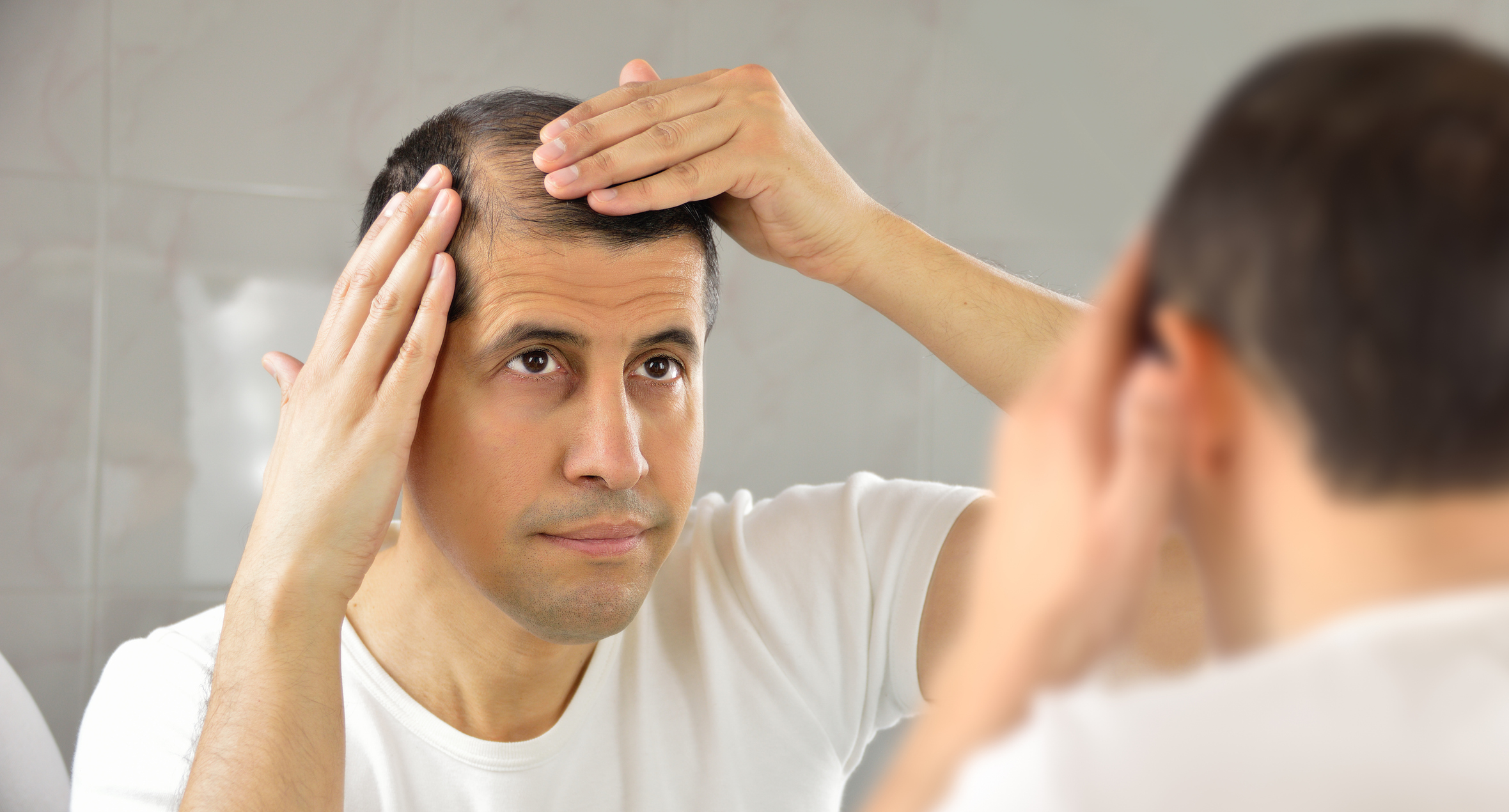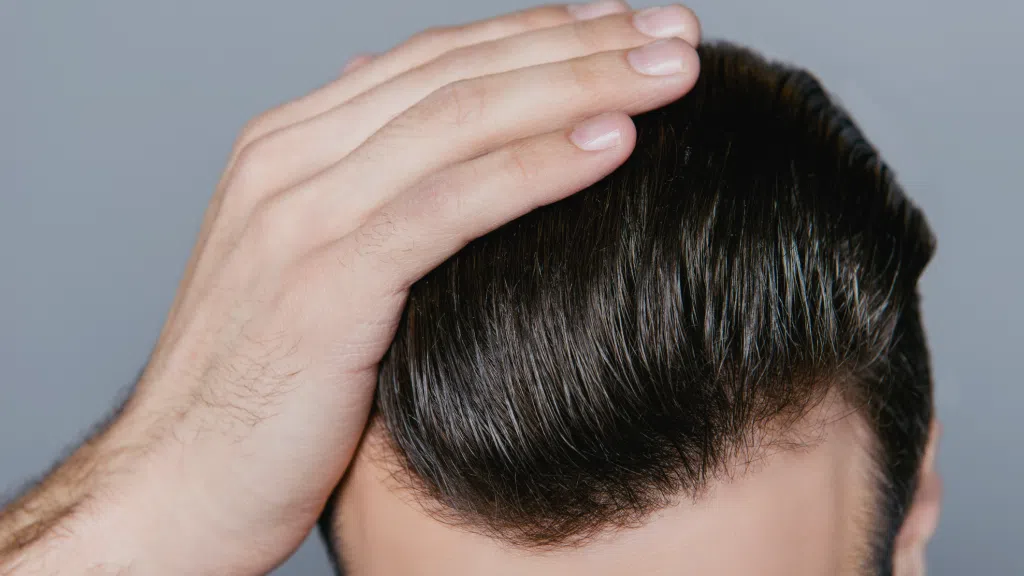The relationship between testosterone and hair growth is complicated. While high testosterone levels can spur more facial and body hair, they also raise DHT levels that accelerate male pattern baldness. However, low testosterone slows the balding process and negatively impacts muscle mass, bone density, and sex drive.
Before we answer the question, “Is testosterone related to hair loss?” we will review Dihydrotestosterone and its effect on testosterone.
What is Dihydrotestosterone (DHT)?
Dihydrotestosterone (DHT) derives from testosterone in the male body through a converting enzyme. This androgen binds tenaciously to receptors along our hair follicles. Over time, this shrinking action of DHT leads to miniaturization—progressively finer hair strands—eventually advancing to thinning and then baldness.
While part of a normal process, the relationship between testosterone metabolism producing excessive DHT and premature hair fallout proves complicated.
Does Low Testosterone Cause Hair Loss?
Not necessarily. While low testosterone reduces DHT levels, which enable hair miniaturization and loss over time, this hormone drop simultaneously diminishes factors that support robust hair growth, like circulation and follicle nutrition. It doesn’t prove very easy. So, low testosterone does not always cause hair loss.
Does High Testosterone Cause Hair Loss?
To answer the question, does testosterone cause hair loss? Indirectly, yes. Elevated testosterone prompts increased DHT conversion binding to hair follicles, prompting progressive miniaturization and shrinking them over time. This DHT accumulation tied to testosterone ultimately advances pattern hair loss.
Does TRT Cause Hair Loss?
Potentially, yes, TRT (testosterone replacement therapy) could put you at more risk for hair loss. Testosterone replacement aims to restore healthy hormonal levels in deficient men. However, introduced testosterone gets partially converted to DHT over time.
This can accelerate male pattern baldness progression in predisposed individuals, especially if testosterone elevates into supra-physiological levels beyond normal ranges during treatment through improper dosage or administration.
Tips for Avoiding Hair Loss on TRT
Here are a few tips to help avoid hair loss on testosterone replacement therapy.
Monitor DHT Levels
When supplementing with testosterone therapy, regularly monitor your DHT levels. Ask your doctor to schedule bloodwork evaluating DHT along with total and free testosterone levels at least every 6 months. Keeping DHT in the normal range can help mitigate hair thinning or acceleration of male pattern baldness.
Use DHT-Blocking Shampoo
Consider a DHT-blocking shampoo containing ingredients such as saw palmetto or ketoconazole. Research shows these natural DHT inhibitors can aid hair regrowth and density when applied consistently. Use a DHT-blocking shampoo at least 5 times per week for optimal effects.
Consider Finasteride or Dutasteride
Discuss finasteride or dutasteride with your doctor. At low doses, these medications block the conversion of testosterone into DHT without severely inhibiting other hormonal pathways. Reduction of overall DHT levels along with the other tips can prevent a receding hairline while undergoing TRT.
Use a Laser Hair Comb
Consider using a laser hair comb that applies low-level light therapy to the scalp. Studies demonstrate these devices can stimulate follicles, improve growth cycles, and prevent hairs from falling out prematurely.
Schedule a Consultation for a Hair Transplant
For advanced hair loss caused by testosterone replacement therapy, a hair transplant is an effective method to restore your hair. A hair transplant can give you natural-looking results, covering the areas of the scalp you’ve experienced hair loss.
Closing Out: Testosterone and Hair Loss
Testosterone can cause hair loss. Understanding Dihydrotestosterone and monitoring your DHT levels can help mitigate hair loss risk related to increases or decreases in testosterone.
If you have any questions or concerns about hair loss, the doctors at Natural Transplants are here to help. We can provide you with an honest assessment of your hair loss and your options.


